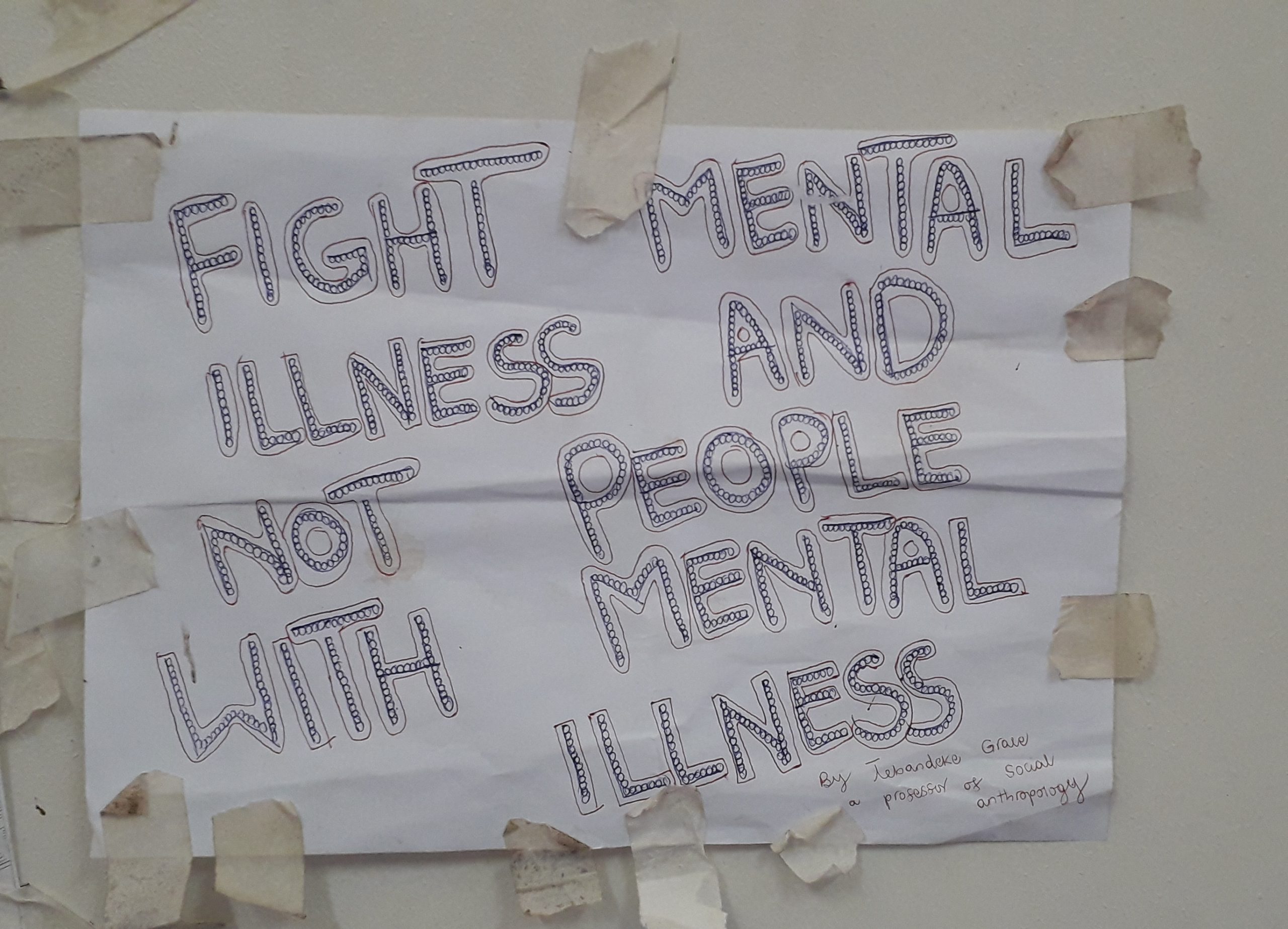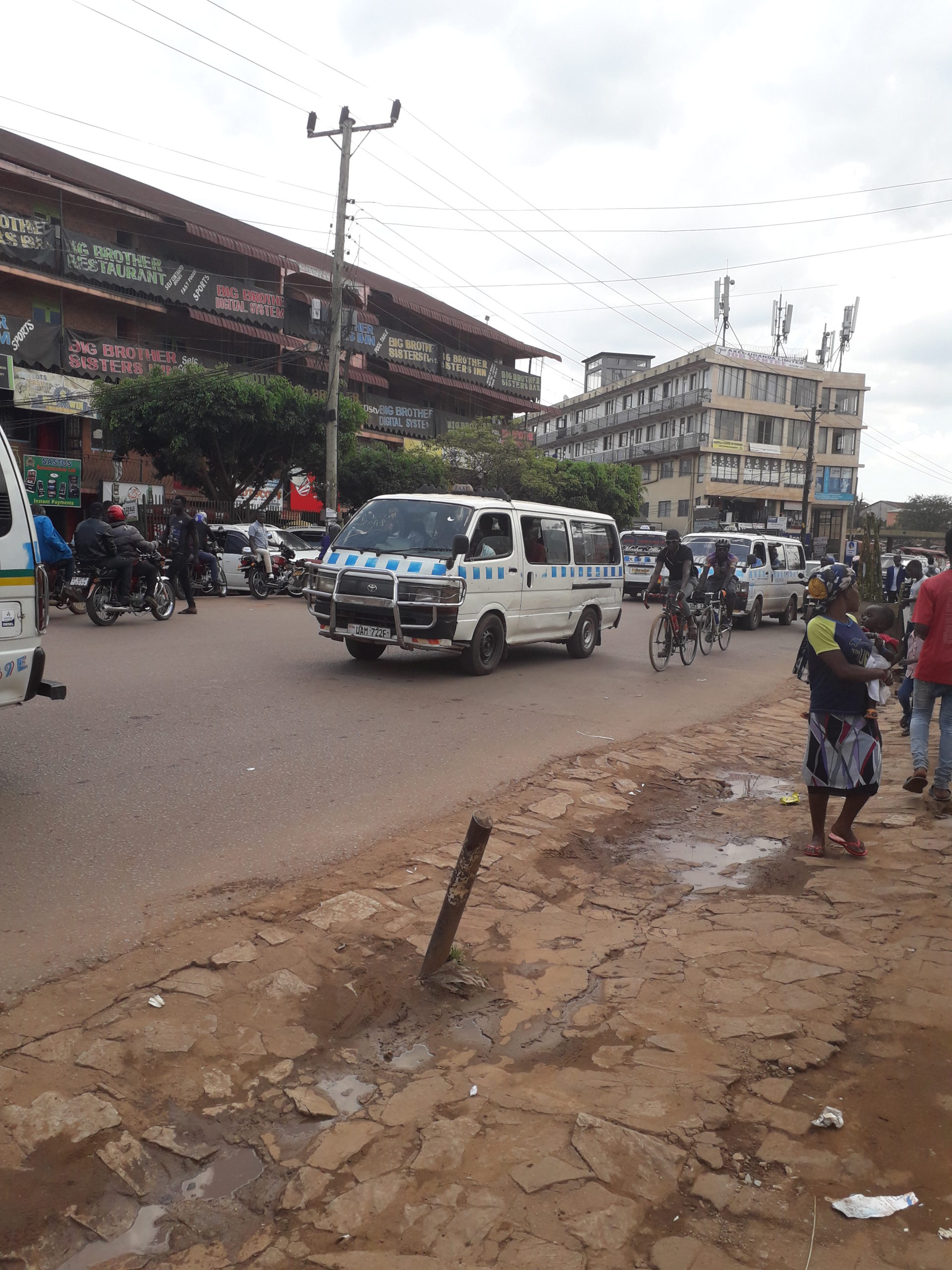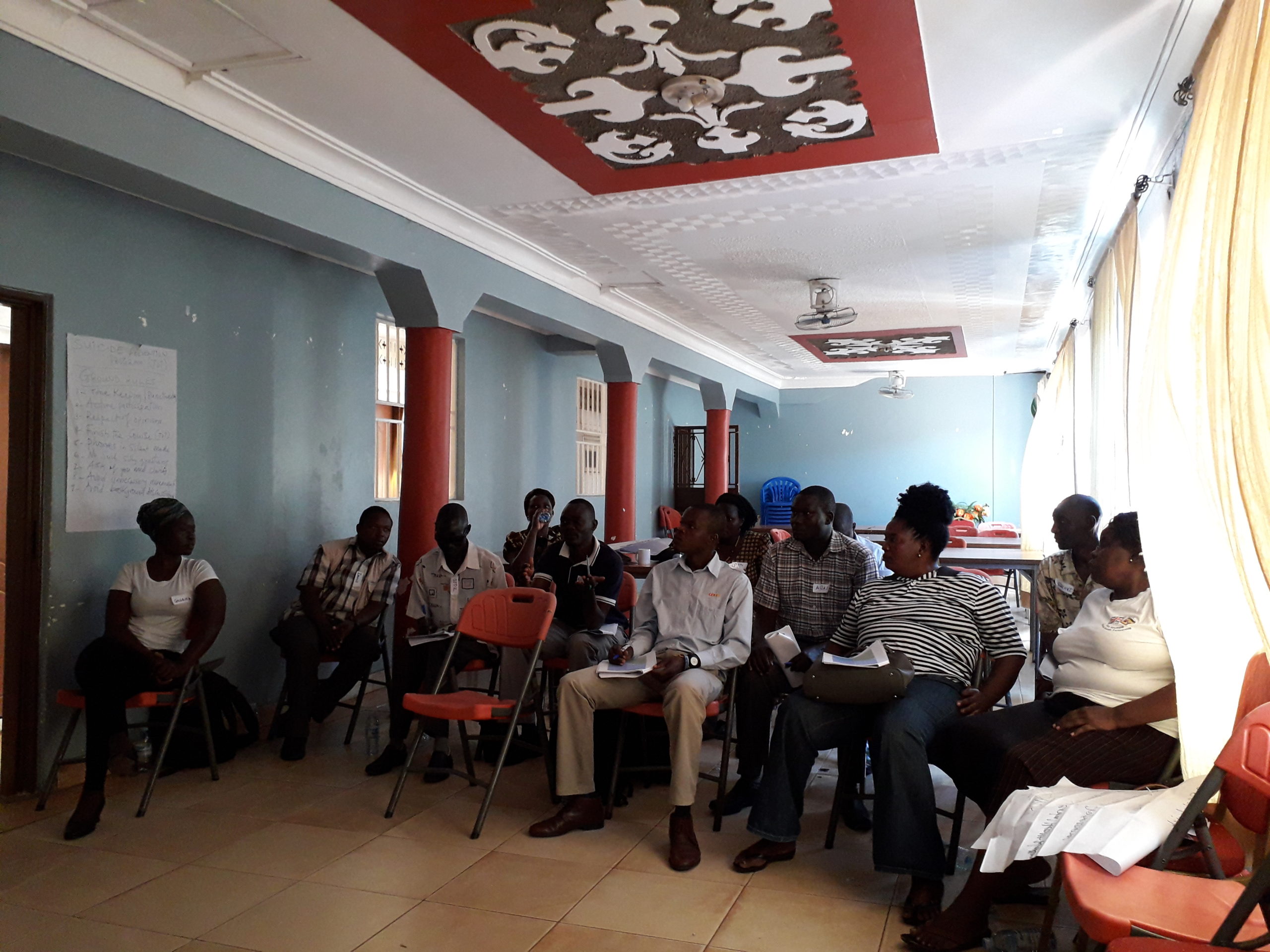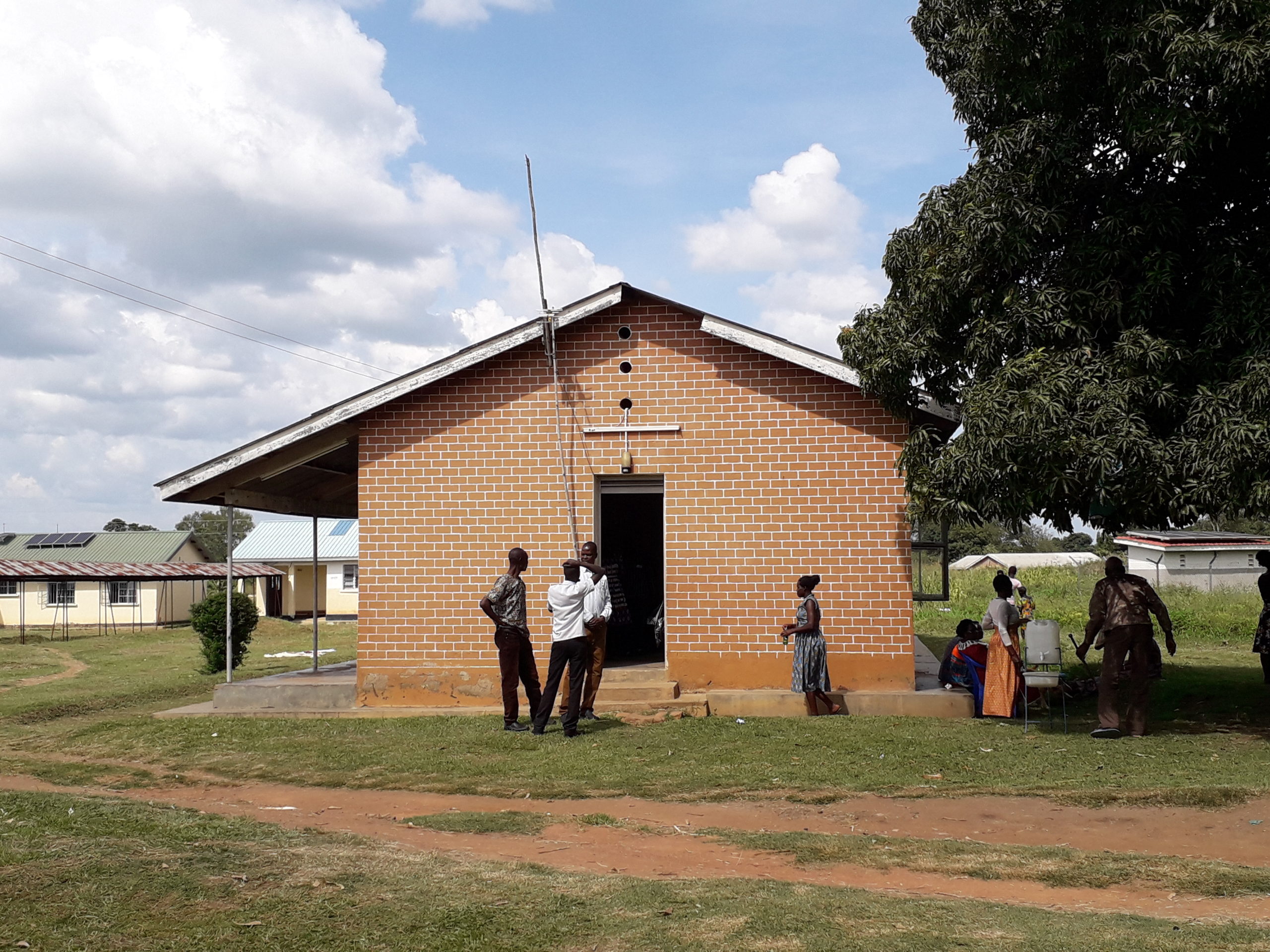On the Road to Suicide Awareness: Gulu, Uganda

Trigger Warning: this article deals with suicide. Please read at your own discretion.
Having spent much of my recent work time dedicated to suicide awareness and suicide prevention in Sheffield, England I was privileged to be offered the opportunity to travel to Africa to share the skills I have learned and to learn more from our mental health care partners in Kampala and Gulu, Uganda. Sheffield Health & Social Care NHS Foundation Trust, through the Gulu Sheffield Mental Health Partnership (GSMHP) which has been working in Uganda since 2012. As well as working on the development of this newly funded suicide prevention project members of the visiting team were also focused on helping to re-certify hospital staff in RESPECT techniques as a part of a longer running Tropical Health and Education Trust (THET) funded project.
RESPECT is a non-confrontational, de-escalation based way of managing potential violence and aggression that minimizes the need for physical restraint and restrictive practice by positively harnessing an individual’s unique personal strengths in managing difficult situations. RESPECT training techniques have been shared with key staff at the Gulu Regional Referral Hospital since 2012 and the results of this partnership work have been a phenomenal success in both Sheffield and Gulu. As a junior nurse, I remember attending 5-day courses on Preventing and Managing Violence and Aggression (PMVA) where they were essentially teaching me how to restrain people with holds akin to those used by the police to restrain violent criminals. Thankfully in Sheffield and in Gulu, the use of those techniques is well and truly a thing of the past and the experiences of the service users now play a key part in understanding how to manage potentially difficult and confrontational situations.
The Trip Out
I am not a great flyer so I was understandably anxious in the face of a long airplane journey but we arrived safely in Entebbe Airport in Uganda after a short stopover in Rwanda. The first thing that hit me as we traveled through Entebbe to Kampala was the heat and the activity; everyone is busy doing something whatever the time of day.
After a night’s rest in Kampala, we had breakfast with Eddie, a mental health service user advocate who has played and continues to play a major part in shifting the thinking about mental illness in this part of Uganda, this was my first real inkling that‘experts by experience’ play an important role in the development and delivery of mental health services in Uganda. After breakfast we said goodbye to Eddie and set off on the long journey to Gulu; Gulu is a city in the northern region of Uganda. It’s the commercial and administrative center of Gulu District with a population of about 150 thousand. The road to Gulu is straight and long but I was struck by how lush and verdant the whole place is, my eyes nearly popped out of my head at the astounding beauty, of the people and the place, as we drove past monkeys over the Ceruma bridge across the mighty river Nile.
Before we left England our group’s leader Kim had warned us that we would be working long hours and she wasn’t joking, as soon as we arrived in Gulu we met with some of the team we would be working with over the next couple of weeks and began to plan the delivery of the suicide prevention and the RESPECT training. Freddy, George, and Nicolas were extremely welcoming and their enthusiasm to start the work was contagious and invigorating.
And It Begins
On our first full working day, we visited Gulu Regional Referral Hospital’s Mental Health Unit. I didn’t allow myself to have any pre-conceived ideas of what this would be like but wasn’t surprised to find, like many mental health institutions across the world, it was in need of financial investment and was a much smaller part of a very big hospital. A member of staff told me that the Ugandan government gives 1% of its overall health budget to mental health services and again I couldn’t help but think that the under-funding of mental health services is a global issue and not unique to Uganda. However, under-funding services in a place like Gulu, in comparison to the under-funding faced by services in Sheffield is like comparing apples with sausages and being on the ward filled me with a sense of over-privilege and humility.
Despite the many daily challenges, like the lack of regular medication stocks and the inconsistent electricity supply, the ward was trying to offer help to everyone who came through their doors. I was surprised to find that JJ Paul, chair of the Gulubranch of the service user movement, Mental Health Uganda and peer support worker had an office on the ward and was integrated into the everyday work of the ward. A really important lesson for me was how far behind we are in Sheffield in this regard. Peer support work, recovery, and the service user movement seemed to me to play a massive part in the services provided for mental health issues and dedicated peers and mental health advocates like JJ Paul are accepted and respected for the skills and experience that they have to offer. On reflection I don’t think I have ever met anyone like JJ Paul, he had an innate understanding of the suicide awareness training, which he stayed involved in throughout our time in Gulu, and a captivating persona when speaking to an audience, something I was lucky enough to witness on several occasions.
Sister Immaculate
Sister Immaculate showed us around the ward and introduced us to the staff on duty, her dedication and commitment were clear to see and she was another one of the many amazing and truly inspirational people I met in Uganda. I learned the value of small steps and how they can make a big difference, like the wall that had been built to separate the men’s ward from the women’s ward, the children’s ward that had been decorated with animal paintings and kitted out with toys and the cooking facilities that had been renovated with proper charcoal cooking pots so attendant didn’t have to have open fires to cook their food, all funded by the GSMHP. At the Hospital patients had to have attendants with them during their admission and at outpatient appointments. The attendant’s, who could be a friend’s or family member’s, stay with the patient, cooking their meals and attending to their daily living needs. One of the attendants that I met had walked 50 miles to the hospital with her mentally unwell daughter and her daughter’s 7-month-old baby.
In the ward round, she explained to the staff that she had had no contact from her village, lacked food and money to buy food and they had not eaten properly for 2 days. Her plan was to walk the 50 miles back to the village that day with her daughter and the young baby. Whilst the ward staff were able to prevent this and identify a meager amount of money for her to keep her daughter in treatment, one of the staff told me that social support and social workers were a scarce commodity in the hospital. As I was lucky enough to sit in on a number of outpatient clinics I heard one heart-wrenching story after another that to me illustrated not only how hard life can be in Uganda but also how truly resilient the people are.
During one of the visits to the ward, we witnessed a teaching session centered on the topics of epilepsy and suicide awareness and this clearly wasn’t just for our benefit as the staff didn’t know we were coming. It was attended by medical students, staff, and patients and was intended to increase awareness about the issues which affected many of the people in the ward. One of the staff delivering the training told me that many people still hold beliefs that epilepsy and suicide are linked to evil curses and that there is a strongly held belief that the condition of epilepsy is contagious and can be passed on by touching someone with the condition. The training session was well delivered and well received and many of the patients related their own stories at the end, one woman said to the assembled group, ‘we should all listen to what we have been told and spread the word in order to help each other’.
The Way It Is
On the first Wednesday of the week, we attended a conference on mental health and suicide prevention and it soon became abundantly clear to me that issues such as these were treated like everybody’s business and everybody felt that they had a part to play. There were health staff, lawyers and Human Rights officials, University staff, religious leaders, community leaders, police, government officials, service user movement representatives, and many others all wanting to talk about and work to reduce mental health stigma and suicide. People spoke openly about their experiences and it was at this point that I learned a number of new things like the fact that suicide in Uganda is still illegal and attempted suicide is punishable by 2 years imprisonment, that people who die by suicide are often ‘whipped’ before being immediately buried and if they hanged themselves from a tree the tree would be burned down and destroyed.
This obliteration of the object from where the person took their life is linked to a firmly held belief that suicide is a curse and unless purged will continue in the family lineage. It is important to remember that this is not just limited to trees and one of the religious leaders told me that if someone takes their own life in a house then the same rule applies. One of the aspects of this practice that I think is important to consider is that in most cases the loved ones and family of the deceased will want the tree or house destroyed as they also firmly believe this will purge the evil spirit from their bloodline.
I think that without exception everyone I met in Gulu had strongly held positive religious beliefs and I really struggled to come to terms with the fact that magical evil spirits and curses played such a big part in people’s thinking. Although I also realize that these kinds of beliefs are still held by people living in England and other countries around the world. Over the course of the time I was in Uganda I think that this aspect of the suicide awareness training, trying to engender a view that suicide is a social or medical problem rather than a curse or related to evil spirits, was the most challenging for me to personally come to terms with and even now I have a voice in my head that says ‘who are you to say what people should and shouldn’t believe’ and ‘get off your high horse and join the real world of Ugandans’. I think that because of this I have really learned that you can’t tell people what to and what not to believe; you can only offer alternative ways of looking at the issues and I think this is true where ever you are in the world.
Suicide Awareness Training
Our first training session started with training the trainers and introducing the course material to the 15 health care staff that would take it away and deliver training in their local health centers to other health care professionals. These training sessions and the people attending them were an amazing experience for me and I got a lot of pleasure out of the fact that the group quickly picked up the thrust of the materials and the theories behind them. I also learned a lot of things about myself during this training, like my over-reliance on PowerPoint, not something you should have when faced with regular power cuts, and my limited understanding of the local causes of suicide. I mistakenly felt I knew what caused suicide inside and out but in Uganda, people have different stressors that can make them think of taking their own lives.
Land wrangles are one good example, I had no concept of what a land wrangle was and very little concept of the absolute importance of needing to feel like you are the breadwinner and the main provider if you are a man. During the sessions, the participants had a number of in-depth debates about the progressive role of women and the perceived diminishing role of men. I learned that the previous long-running civil war in Uganda had and was still having a massive impact on the male and female roles in society. This is especially true within the dominant tribe of Gulu, the Acholi people, and this is one factor that plays a part in increasing the number of suicides, especially in the male population. One of the participants told us about a man he knew who had wanted to marry but when he asked his family for a share of their land to farm and raise a family (it is a common practice for family to share their land with other family members) his request was refused, the result of this being that he would not be able to marry his chosen bride, and so he took his own life.
Cultural Richness
I cannot do justice here to the rich cultural diversity and history that has shaped this part of Uganda but like everywhere, I believe that no one size fits all and clearly what’s required is suicide prevention training that is relevant to the population including small details like use of language and symbols that you normally take for granted in your own community. I smile to myself when I remember how we sat reviewing the course materials with Freddy the project lead and we got to a slide that was meant to illustrate how when a suicide occurs it affects many more people than just the individual and their close family; we originally used a drawing of an iceberg with the words ‘suicide is just the tip of the iceberg’, meaning there is much more unseen beneath the surface. Freddy quickly pointed out that most people wouldn’t get this reference (understandable given the lack of icebergs in this part of the world)so as a team, led by Freddy we came up with the concept of ‘suicide is just the tip of the hippo’ and illustrated it with the picture of a hippo submerged in water with just the top of its head visible. The group we were training understood this straight away because it made sense to them.
After training the trainers we traveled to a village called Awach to observe and assess the newly trained health care professionals deliver the training to other members of their team. This was delivered entirely without the use of PowerPoint, as there was no electricity, and again there was so much to learn in terms of group engagement and sharing learning effectively. What was really clear was that the people that had been trained had really got it and they delivered the training smoothly and at a level, you would never have expected for newly trained trainers.
Reflection
It is impossible to reflect on everything we did together in Gulu or to mention all the dedicated hard-working people we met, like George the project deputy and the go-to person for everything from photocopying to meticulous organizational skills, because the list would be endless. The team had the pleasure of being invited into George’s lovely home to meet his family and eat with him after the training had finished and we were treated like honored guests, I ate so many sweet potatoes, chicken and rice that I could barely move afterward.
After the first main part of our work in Gulu was finished we traveled back to Kampala to visit the mental health unit at Butabika hospital. By this time I thought I had seen and experienced most of the difficulties and challenges that Ugandans face and overcome but walking on to the various psychiatric wards at Butabika soon made me realize that this was not the case. On the male ward, the ward manager told us that they have 50 beds available but that there were currently 160 patients in the ward. I think by this point I had given up trying to think about the rights and wrongs of this and realized that even with all the challenges this kind of situation brought they overcame them with a sense of optimism and duty. There was an active recovery college on-site and we met people who had lived experience of mentally ill health who had dedicated themselves to trying to help others overcome their mental health issues by actively working as peer mentors.
The Trip Back Home
As we prepared to leave Uganda I had a strong feeling that my time there had been short but that in that time I had experienced a little of what it feels like to have to fight for everything and still keep going even in the face of enormous challenges. I personally experienced every emotion possible from anguish at what I was seeing to envy for the strong sense of identity and perseverance I saw in the Ugandan people. The work continues and I remain involved in the suicide prevention project. Freddy, George, and others are just about to deliver training to the second cohort of health care staff in the region and I can’t wait to see the results and share in their success. Suicide awareness and prevention is a global issue and we could all learn a lot from how Uganda is starting to tackle this problem.













